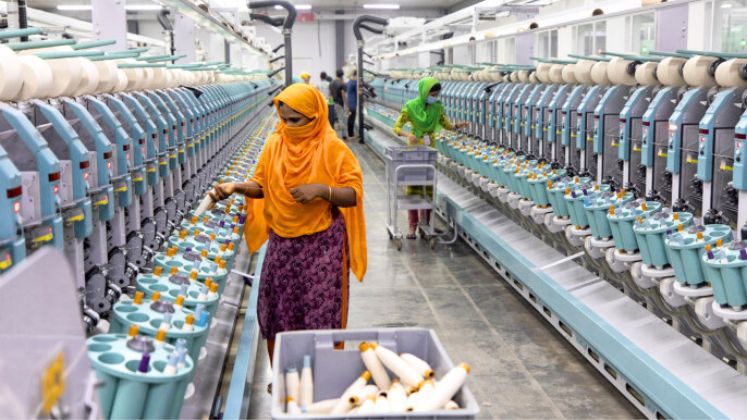
Textile millers in Bangladesh have called on the Government to suspend yarn imports through land ports, citing concerns over misuse of the facility and its detrimental impact on the local industry. The Bangladesh Textile Mills Association (BTMA), representing spinning and textile mill owners, made this appeal in a letter addressed to Finance Adviser Salehuddin Ahmed.
The BTMA suggested that yarn imports should only be permitted through seaports. They argue that the current system, which allows imports through land ports, has been exploited, leading to significant challenges for local mills.
BTMA President Showkat Aziz Russell explained that the previous Government’s policy revision permitting yarn imports via land ports has created complications. He noted that these ports do not have adequate facilities for thorough inspections of raw materials. Moreover, the allowance for partial shipments has reportedly led to widespread misuse, harming local textile manufacturers.
Despite a reported increase in apparel exports in the new fiscal year, Russell indicated that domestic mills are struggling due to various challenges, including low order volumes. He expressed concern over the rising textile exports from India to Bangladesh, which he believes undermines the country’s interests.
In their letter, the BTMA warned that the continued import of yarn through land ports could inflict irreversible damage on the textile sector, making it difficult for local industries to compete. They stressed that reliance on imported yarn would lead to increased costs and higher unemployment rates.
The association highlighted the adverse effects of the post-Covid economic downturn and the ongoing Russia-Ukraine conflict on the industry, which is already grappling with rising energy prices, a dollar crisis, soaring interest rates, reduced export incentives tied to LDC graduation, and currency depreciation.
Furthermore, the BTMA raised alarms about the influx of yarn and fabrics into the local market at dumping prices from India through various land ports, exacerbating challenges for domestic producers. They pointed out that key land ports, such as Benapole, Bhomra, Sona Masjid, and Banglabandha, lack the necessary infrastructure, skilled manpower, and effective oversight, leading to inefficient management of import and export activities.
The association emphasised that allowing yarn imports and partial shipments has severely impacted the domestic textile industry, particularly spinning mills. Local mills face unfair competition from unauthorized yarn marketed through land ports with false customs declarations, resulting in revenue losses for the Government.
The BTMA’s letter proposed an immediate halt to yarn imports through land ports and a shift to seaports as a means to protect the domestic textile sector and preserve foreign exchange. They noted that while yarn imports via seaports take 13 to 15 days, they benefit from advanced scanning technologies and better infrastructure for quality control.






